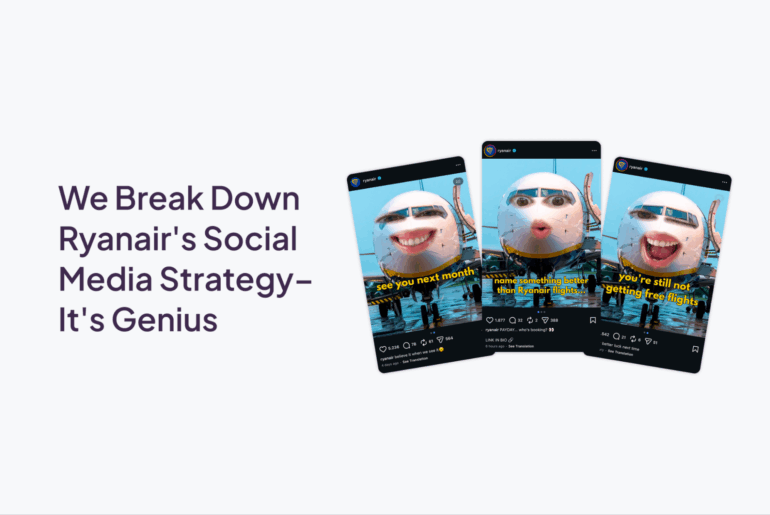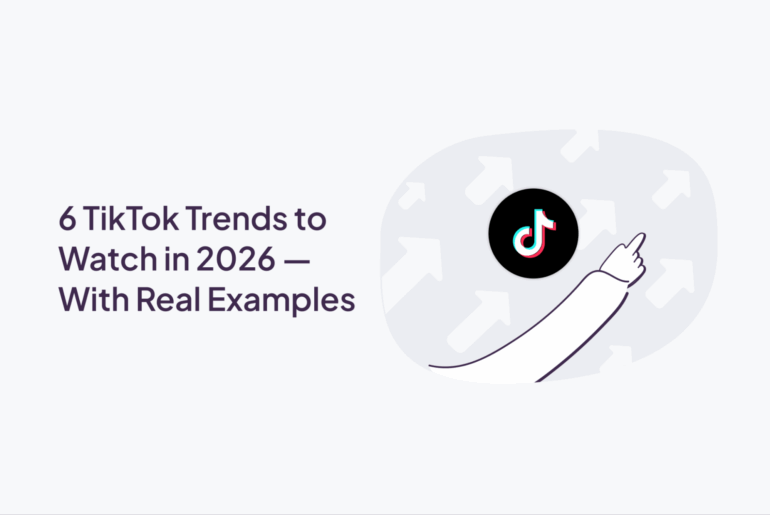This article originally appeared on VentureBeat.
Artificial intelligence is already well-established in the world of targeted advertising and recommendations. But artificial intelligence is also rapidly evolving on social media as a way to help brands quickly and efficiently discover, engage, and learn from their followers.
Although there is no one definition for it, we can summarize social artificial intelligence as a form of collecting and sifting through customer history, user-generated content, and data from social media channels to generate more relevant content and as a result, a more meaningful experience for followers.
Social AI has the ability to provide a better social experience overall. For an example of what social AI can do, we just have to look at Facebook. The social network has already incorporated artificial intelligence as part of the platform in many innovative ways. From automatic face tagging to the stories that appear in News Feeds,
Facebook has been at the forefront of what AI can do for social media by incorporating a variety of AI technologies that help continuously improve the Facebook user experience.
We’re now seeing more and more social networks investing in social AI technologies, and although the technology is still relatively young, many remarkable new ways to surface content to audiences have emerged. Yet, despite the groundbreaking opportunities social AI presents, it’s shocking that many brands have yet to turn to social AI to help engage their audiences, target new customers, and analyze the enormous volumes of social data that is now accessible.
So to help uncover what social artificial intelligence can do, here’s a look at some of the exciting opportunities it brings to the table for those in the social media marketing world and how marketers can keep an eye on this trend.
Less time monitoring, more time creating
Rather than viewing social AI as a potential threat to the jobs of social media marketers everywhere,
John Hagel of Deloitte suggests the new wave of technology could actually be an exciting opportunity for brands to free up their time for more real, creative work. If we allow machines to take care of all of the diminutive, everyday tasks that machines can take care of (such as recommendations and customer support), then marketers can have more time to focus on the creative side of their campaigns.
“The technology that seems so threatening now may actually become our ally, amplifying our performance improvement by freeing us from the tasks that today keep us tightly locked into the routines of the past and providing us with the data we need to spark even more imagination and creativity.”
– John Hagel, Co-chairman for Deloitte’s Center for the Edge
For brands publishing multiple new stories or posts per day, automating a significant portion of those messages can free up time for creating more substantial content and monitoring responses. The New York Times did just this with its chat bot that automates some of the
300 messages it posts to its social media pages daily.
The intelligent bot helps predict how stories will perform on social media as well as suggests which stories editors should boost or promote. An analysis of the campaign found that the posts generated by the chatbot received almost
380% more clicks. For marketers seeking to keep engagement levels up while keeping the numbers of hours spent creating content down, this can be a good way to do so.
Finding followers with facial recognition
There are a number of facial recognition technologies that exist, but Facebook took its algorithm to the next level with AI. With its enormous database of images, Facebook’s algorithm is constantly improving through machine learning. Every time someone tags a photo, it is added to a huge, user-driven wealth of knowledge that helps advance the entire facial recognition algorithm. According to Facebook, it is able to accurately identify a person
98% of the time.
Such facial recognition on a wider scale could have many applications for a brand’s social strategy.
Andy Pringle, head of performance media at digital marketing agency
Performics points out just how brands will be able to target followers with facial recognition technology:
“You can imagine brands asking people to give permission to be recognised in return for offers while they’re out and about. Say, there’s a guy waiting for a bus for ages in front of digital screen running a beer campaign. If that person likes that brand on Facebook you can foresee either the screen saying “hi” and giving him or her a voucher code for a free beer or triggering a voucher to be delivered to their Facebook inbox.”
Surfacing the most valuable conversations
It’s highly unlikely that AI will ever replace all engagements on social media because after all, the point of social media is human interaction. But it does give brands the ability to automatically surface the most valuable, important conversations to respond to or engage with.
As Eli Israel, the founder of
Meshfire, a platform that uses AI to assist with social media,
discusses the workloads of social media managers have hit an all-time high. Social media teams have been assigned with an overwhelming number of tasks that go beyond simple content creation — they are required to perform a certain level of customer service as well. Unfortunately, customer support has become a major time suck and there a number of ways he suggests social AI can help social media teams alleviate the pressures of providing instant support in order to spend their very limited time much more effectively,
including:
- Identifying which inquiries are coming from real people and which are coming from bot accounts.
- Creating a queue for responses that prioritizes high-profile users first.
- Identifying your happiest followers and the ones who are engaging with your brand the most so focus can be placed on them.
- Uncovering which tools were used by followers to send you a message so that dangerous links and spam can be avoided.
What you can do now to prepare for artificial intelligence on social media
Increased investments and resources are being allocated to the advancement of social AI technology to revolutionize social media and a brand’s role in it. The intersection of social media and AI also presents many new opportunities for social media marketers to shine. To prepare for this new age,
Forrester discussed a number of recommendations on how marketers can adapt. And while they are mostly referring to the surge in chatbots, the advice can also be applied to adapting to social AI.
Forrester states, “being human, helpful, and handy is key.” The traditional marketer role of “pushing” content must be readjusted to focusing more on two-way conversations. AI will guide the conversations in the beginning, but humans must step in for the actual engagements.
Marketers must also accept that they will need to serve customers in real time. Instant responses are now expected on social media, and these expectations will only solidify over the next year. Making sure your team is set up internally to handle rapid turnarounds on social media, and implementing automated response technology, if needed, will ensure your brand is prepared to deal with these customer expectations in both the short and long term.
How to tune into the AI conversation
There are a number of ethical dilemmas that surround artificial intelligence. Questionable trending algorithms and
fake news are just two examples of the side effects we’ve seen so far. Even though these have created more problems for publishers than actual brands on social media, it’s still important to follow these stories as artificial intelligence applications carry over into the marketing world.
The amount of research being put out is still limited, so following the top AI thought leaders who are discussing the intersection of AI and social media is a good way to stay on top of this trend. IBM omnichannel marketer
Amber Armstrong, speaker and brand consultant
Tamara McCleary, and
Marshall Kirkpatrick are just a few people identified as the best social media thought leaders to follow in this space.
Social AI will constantly change as it further develops, but keeping a close eye on this trend is a good place for marketers to start. There won’t ever be a complete substitute for human engagement, but social AI definitely has the potential to be a means to the end goal of social media marketing, which is to truly understand your followers.






